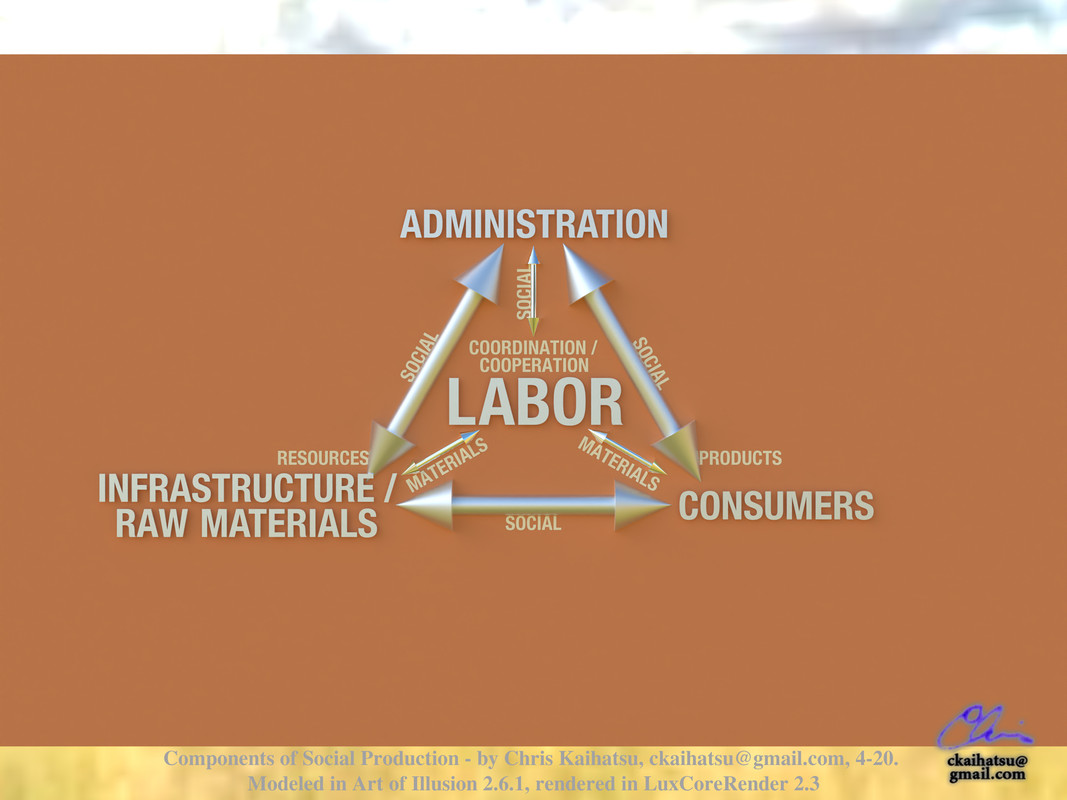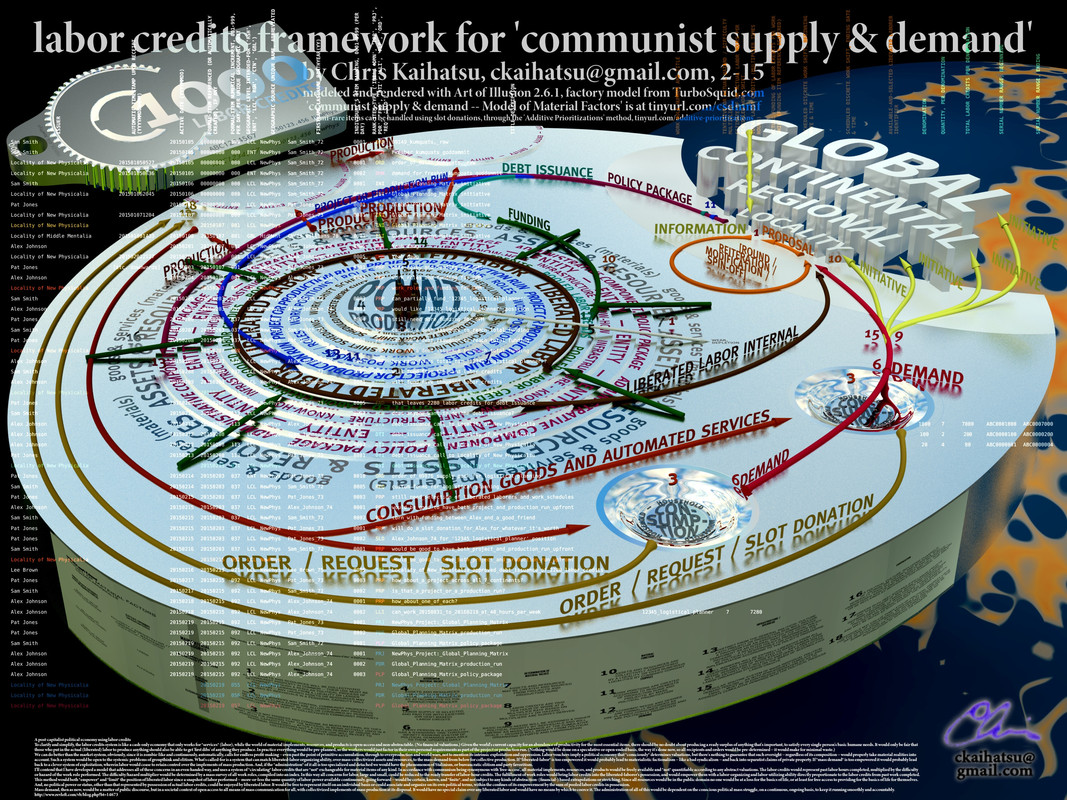I'd like to address the thread's topic / question more directly -- I first need to preface my treatment with the following structure / understanding of what *interests* would be present in a post-capitalist / communist political economy:
Components of Social Production
What this 'structure' of social production shows is that, even post-capitalism, there would still be somewhat differing interests *by material role*. There would be no *private* interests for endless accumulation, though, which would be the entire *point* of communism.
All people in a post-capitalist / communist society could move through all material-role / interests at various times throughout the day, or they may not. I happen to think that society now has such tremendous powers of material productivity that it really *wouldn't matter* whether people worked for society, or not -- as long as there was a minimal 'critical mass' of participation, automated industrial means of mass production could be activated to keep the machines and conveyor belts moving, to roll off endless amounts of socially necessary goods, for all, free-access and direct-distribution.
So, from the diagram, these main material-roles are: 'infrastructure / raw materials', 'labor', 'administration', and 'consumers'.
'Good work' and 'bad work' -- I'll argue -- could only be defined and understood in the context of 'good policy packages' and 'bad policy packages', for social production, and these various policy packages, per geographic area, per timeframe, would only be decided to be 'good' or 'bad' based on mass aggregated individual daily prioritized rankings (#1, #2, #3, etc.) for that given geographic unit -- like a pre-defined 'locality', by combined consent.
In other words we can take a step back and look to any proposal or policy package for an itemization of the *work roles* required. Maybe Proposal 'A' calls for a total of *1000* liberated-laborers, while Proposal 'B' calls for a total of *800* liberated-laborers. Which is the *better* proposal? I don't know -- it would depend on many other factors, but the point here is that it would be up to those of the *locality* (or greater) to *mass-rank* either Proposal 'A' or Proposal 'B' as higher than the other, over a set period of calendar time, with a pre-existing *deadline* / cut-off agreed-to in advance, to determine the 'winner' policy package if any conflict / overlap was involved.
So since each policy proposal would itemize the *work roles* necessary for the project, we would then have some *standards* regarding societal *expectations* for work roles, and thus for workers. Liberated-workers would still be individuals, and could always opt to not-work if they like, without risking anything, but for those who *do* work, they could become *known* (notoreity), just like today in the career world.
On my own political journey I became *very* concerned with the realistic potential scenario of *social necessity* outstripping the available-and-willing *liberated labor* around to *fulfill* the work required, especially if the work roles happened to be particularly hazardous, difficult, or distasteful. (My go-to is the example of the guy who dons scuba gear to go swimming through the flooded sewers of Mexico City to dislodge garbage clumps that clog the sewers.)
I don't think that this would be an *imminent* concern, though, and I'm certain that the standard communist gift-economy would be sufficient for communism, meaning the fulfillment of people's basic humane needs, worldwide, without exception.
Nonetheless, I developed an entire *treatment*, or approach, to the topic of a post-capitalist / communism political economy, with a model that closely addresses this thread's topic -- here are relevant excerpts:
...Some of the readily apparent *checks-and-balances* dynamics enabled with the labor-credits system are:
- Mass demand, as displayed publicly, per-locality, by the daily mass-aggregated tallied rank positions (#1, #2, #3, etc.), will always be an existing social-pressure, specifically regarding liberated labor contributions to the general social good for varying qualities of public consumption. Such active liberated labor may or may not receive labor credits for their valid efforts, depending on such general *implementation* of circulating labor credits, or not, and the specifics of any active policy package. (Socio-political and material realms vs. individuals)
- Active liberated-labor would control all *ultimate* ('point-of-production') productivity for society, but *not-necessarily-working* people of any intra-voluntary collective 'locality' (or localities) could make and agree-on proposals and final policy packages that contain great *specificity*, as over *exactly* who (which persons) are to be included as active liberated-labor, and also their respective rates of labor credits per hour per discrete work role, and each worker's particular work schedule, as a part of the overall project scheduling. (Consumers vs. liberated-labor)
https://www.revleft.space/vb/threads/20 ... ost2889338
---
Emergent Central Planning
labor credits framework for 'communist supply & demand'
https://www.revleft.space/vb/threads/20 ... ost2889338communist supply & demand -- Model of Material Factors
https://www.revleft.space/vb/threads/20 ... ost2889338















 - By JohnRawls
- By JohnRawls